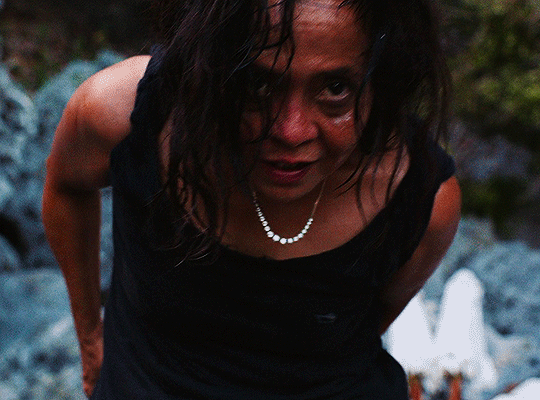[Spoiler Alert]
Ruben Ostland’s Triangle of Sadness begins with a mournful look at the hiring practices of modelling agencies. Shirtless youngsters in jeans are subjected to humiliating instructions and paraded before a group of arrogant, aging hipsters that see twenty-somethings as over the hill. But the real drama comes in the form of a dispiriting fight over a check in a soulless restaurant, with a male model played by Harris Dickinson insisting that his girlfriend Yaya has failed to recognize that with equality comes picking up the tab half the time. “We shouldn’t just slip into stereotypical gender-based roles that I hate,” he insists. “I want to be equal,” he declares, as naively as the neon signs proclaiming equality in the fashion show he has just attended.
His simmering rage begins to boil over as Yaya taunts him, teases him, and revels in her manipulative instincts, all the while making it clear that her retirement plan includes marriage to someone with real money.
Part Two has a bigger playing field, with one side populated by uber-wealthy passengers on a cruise, the other by two tiers of laborers, sunny staff members who aim to please and a largely invisible crew living in cramped quarters below deck. The film gives new meaning to the term “filthy rich” and turns the cruise into a literal shit show that validates Freud’s famous musings about the equivalence between money and feces. No surprise that one of the passengers, a fertilizer kingpin, made his fortune by selling shit, as he proudly puts it.
Part Three takes up the trope of the island narrative, with a small number of survivors from the storm-tossed yacht landing on an island that looks deserted to the shipwrecked passengers but turns out to house a concealed high-end resort destination. It is there on the island that the true savagery emerges, and its face, not unexpectedly, is female. Presto, we are in Lord of the Flies territory, and Abigail, a Filipina worker who once cleaned shipboard rooms, is in charge, now the “captain,” as she insists to the other marooned passengers.
Abigail does not just reinvent herself. She also establishes a new order that upends the social hierarchies on the yacht, and she turns herself into a Promethean figure, capable not only of making fire but also catching fish and making tasty meals of them. As Yaya tells her, “I mean, you managed to run a fucking matriarchy, Abigail. You domesticated all the old alpha males.”
If Part One turns on gender politics in its most banal, quotidian form and Part Two takes a deep dive into class warfare and the brutal inequalities of global capitalism, Part Three gives us the consequences of shifts in gender/class power dynamics and the establishment of new hierarchies. Once those at the bottom of the social ladder make it to the top, they will be no less brutal and exploitative than the arms dealer and Russian oligarch we saw on board the yacht. And in the film’s final scene we get a preview of that new dynamic in the form of Abigail’s treacherous plan to murder Yaya in cold blood (Yaya’s discovery of a way to return to “civilization” threatens Abigail’s sudden rise to power). What do we see but a face transfigured by wrath and envy, one that has the paralyzing power of a Medusa. So much for equality, Ostland tells us, and social change can do nothing but replicate and perpetuate prevailing power structures (just the same old shit), even if and especially when the have-nots (and in this case it’s an immigrant woman of color from the laboring classes) have the chance to be on top for a change. All the dark, chtonic forces associated with women and the masses take on mythical force in the final sequence showing Abigail rising up, murder weapon concealed behind her back, to kill the threat to her power. Yaya’s only chance for survival comes in a coda, showing Carl as white savior sprinting through the woods, clearly with a premonition of the violence that is about to erupt on the island.

Just watched this film last night. Yes, you have outlined what happens in the film. But what else? Is this necessarily what would happen to society (when, not if) the lower classes rise up? Are humans able to learn from the past, from the present, and create a more egalitarian society? I would like to hope so – it’s so depressing otherwise.
My husband thought that Carl was actually running away from Abigail. Maybe she came back to camp with a greater sense of her power and threatened them all. Fun stuff.
My point was that nothing changes, in fact it gets worse, so the film gives us a deeply pessimistic view of the future. Fascinating revision of the ending–your husband may have it right. I thought Carl had a premonition of Yaya in danger but Carl may indeed be running from Abigail.